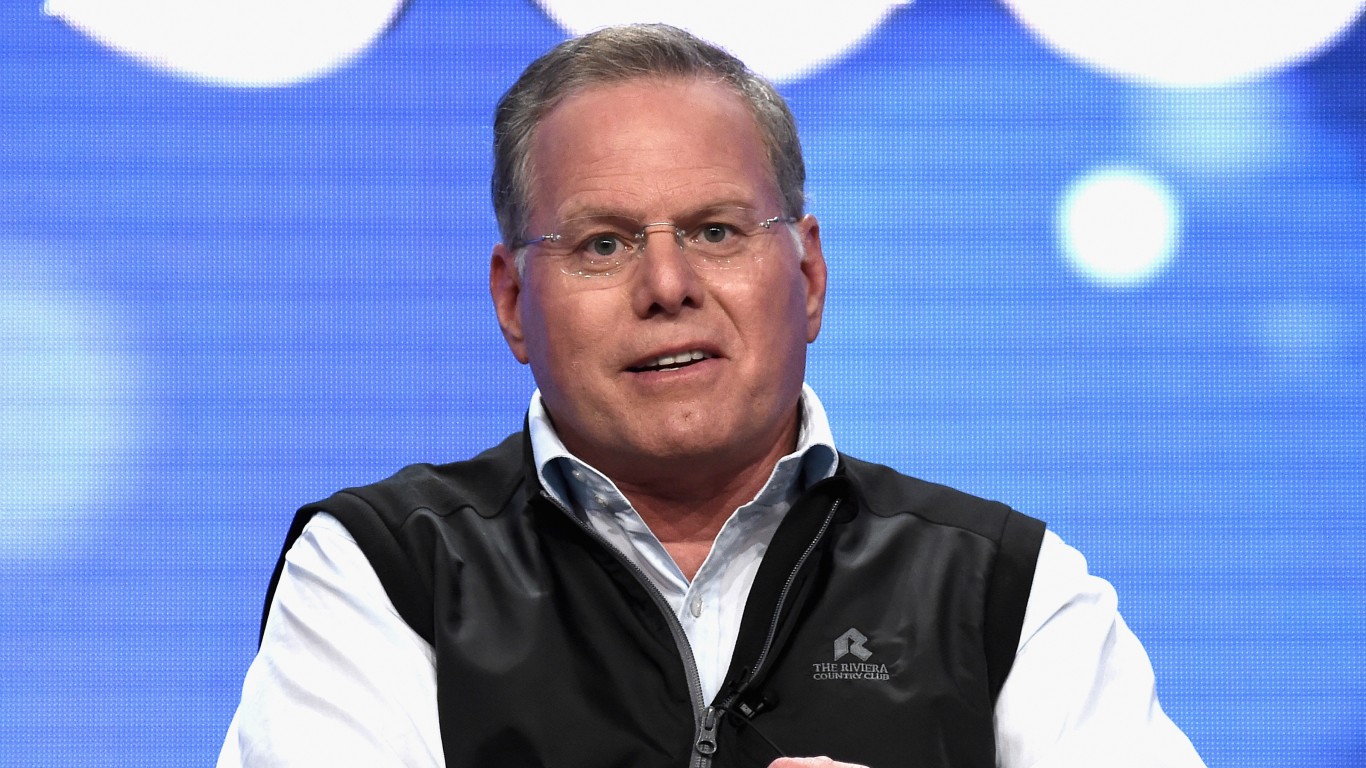
David Zaslav, once a well-regarded media executive, faces investors who think the company he runs — Warner Bros. Discovery — is a dumpster fire. It was created when the media assets of WarnerMedia were merged with Discovery, which Zaslav ran. Troubles at competitors Disney and AMC Networks have already cost CEOs their jobs. While Zaslav is likely to keep his job, the financial results the company has posted and a huge sell-off of its stock have raised skepticism about his strategy and tarnished his reputation.
[in-text-ad]
Warner Bros. Discovery’s stock has dropped 55% since the merger. Disney’s is off 27% in the same period. AMC Networks’ shares have fallen 49%. While most media conglomerate stocks have sold off sharply over this period, Warner Bros. Discovery has been singled out by investors as the least likely to fix severe problems.
Zaslav recently hinted Warner Bros. Discovery’s troubles might get worse. He pointed out the advertising market is in shambles as marketers withdraw or lower budgets. His other comment about why the company has fumbled is that, as he eyed the merger, “It’s messier than we thought. It’s much worse than we thought.” Since Zaslav is considered among the best operators in his sector, the comment is nothing less than shocking. He should have seen the challenge coming.
One of Zaslav’s stumbles is shared by other media companies. He did not seem to understand that streaming services, which are part of his empire, would have a difficult path to profitability. Growth in subscriber bases was prized over high subscription prices. Now, media companies face the problem of raising prices sharply while trying to keep subscribers. It is a hard road because the level of competition is brutal. Amazon and Netflix hold most of the high ground in the industry because they have been in the sector for so long and have built high subscriber bases. Consumers may pay for three or four streaming services. They are unlikely to pay for five or six.
Warner Bros. Discovery’s most recent quarterly numbers could not have been much worse. The company lost $2.3 billion on revenue of $9.8 billion. Its debt levels are extraordinarily high. Zaslav was supposed to do better and be the smartest media executive in the industry. That has not worked out at all.
In 20 Years, I Haven’t Seen A Cash Back Card This Good
After two decades of reviewing financial products I haven’t seen anything like this. Credit card companies are at war, handing out free rewards and benefits to win the best customers.
A good cash back card can be worth thousands of dollars a year in free money, not to mention other perks like travel, insurance, and access to fancy lounges.
Our top pick today pays up to 5% cash back, a $200 bonus on top, and $0 annual fee. Click here to apply before they stop offering rewards this generous.
Flywheel Publishing has partnered with CardRatings for our coverage of credit card products. Flywheel Publishing and CardRatings may receive a commission from card issuers.
Thank you for reading! Have some feedback for us?
Contact the 24/7 Wall St. editorial team.
 24/7 Wall St.
24/7 Wall St.



